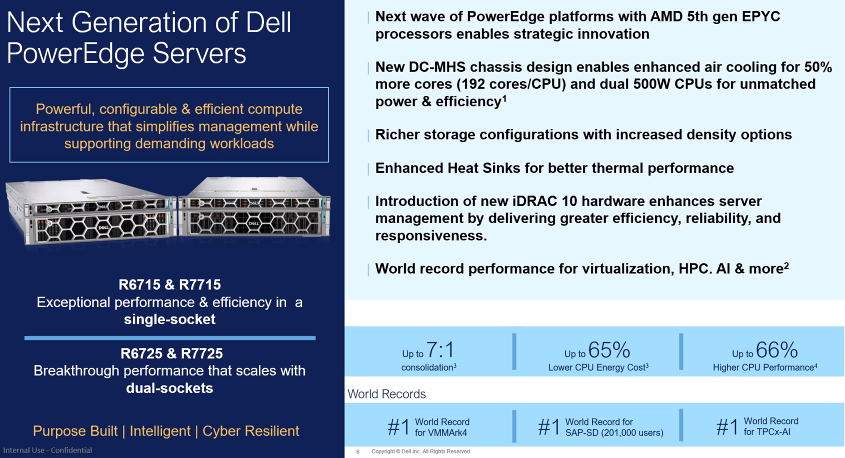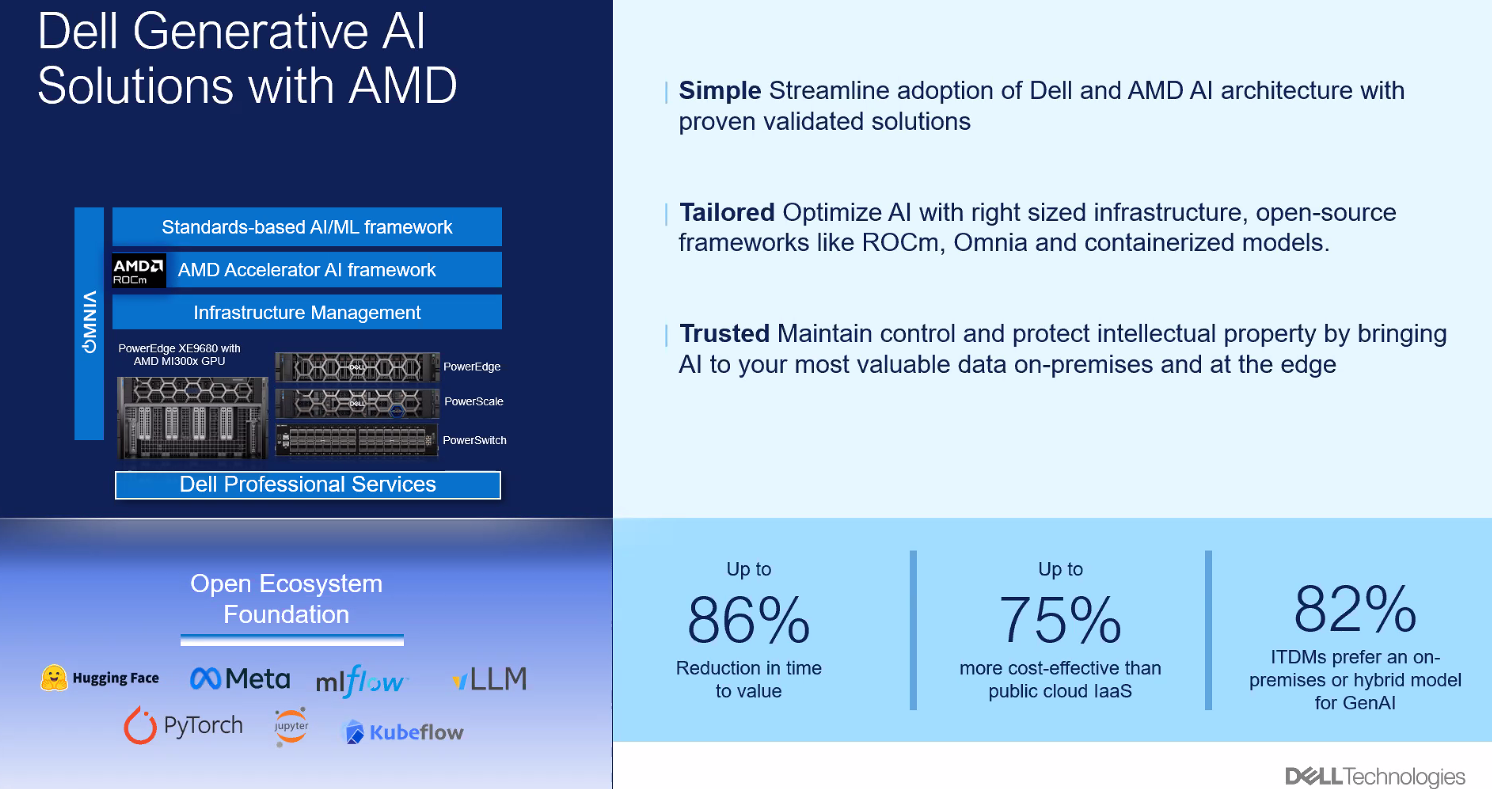Dell Technologies launched new systems powered by AMD's next-generation EPYC server processors and PowerEdge XC9680 system powered by AMD Instinct MI300 and 300x AI accelerators. Dell is also surrounding those AMD powered AI systems with services and the chipmaker's software stack.
With the moves, Dell is basically providing AMD AI factory building blocks along with its Nvidia systems. Dell, HPE and SuperMicro are all benefiting from AI system demand and looking to differentiate on energy consumption, cooling and overall efficiency. AMD launched its next-generation EPYC and Instinct processors at its AI event.
"We're trying to make sure that customers are able to take advantage of the most common AI toolsets and software that they'll use for their AI workloads," said Varun Chhabra, senior vice president of Dell's ISG and Telecom unit. He added that Dell and AMD have already tested and validated the new genAI systems to cut the time to value.
- Dell Technologies COO Clarke: Data gravity will drive enterprise genAI infrastructure demand
- Dell Technologies Q2 driven by AI server demand, backlog
Chhabra said Dell is also surrounding those AMD systems with services to implement them. Dell is also expanding its Hugging Face partnership, which gives enterprises model choices for on-premises deployments, to AMD systems.
Here's a breakdown of Dell's AMD AI announcements.
- Dell PowerEdge R6715 and R7715 servers with AMD 5th gen EPYC processors. A new chassis design provides enhanced air cooling for 50% more cores (192 cores/CPU) with dual 500W CPUs. Dell also added larger storage configurations and enhanced heat sinks. The company said the new systems provide a 7:1 consolidation ratio from the previous generation systems and up to 65% lower CPU energy cost.

- Dell PowerEdge XE7745. These enterprise AI systems provide more GPU density in an air-cooled 4U chassis. The system adds twice the PCIe GPU capacity with options for a diverse set of AI accelerators and optimized cooling for up to 600W GPUs.
- Dell Generative AI AMD systems. Dell said it will package AMD's AI accelerators with its ROCm and Omnia software as well as standards-based AI and machine learning frameworks. This stack will include the PowerEdge XE9680 with AMD MI300x GPUs and services.



